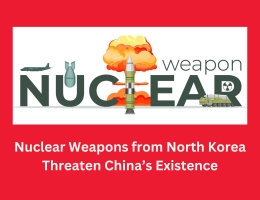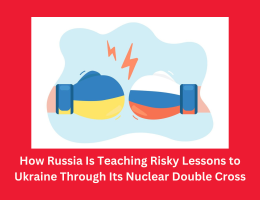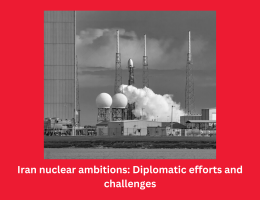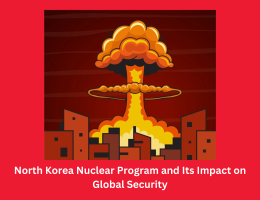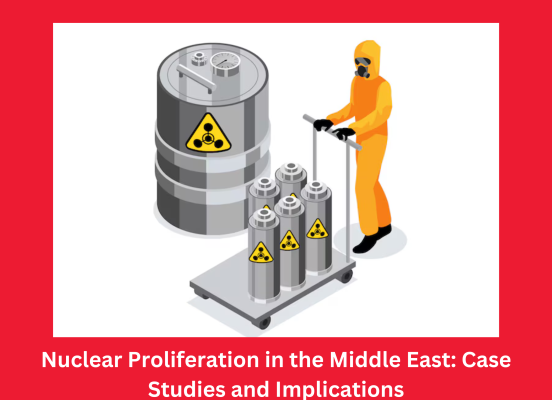
Nuclear Proliferation in the Middle East: Case Studies and Implications
- By admin --
- Saturday, 09 Mar, 2024
Introduction:
The Middle East stands as a region of geopolitical complexity, characterized by longstanding conflicts, regional rivalries, and concerns over nuclear proliferation. The pursuit of nuclear capabilities by certain states in the Middle East has profound implications for regional stability, security dynamics, and global non-proliferation efforts. This essay examines nuclear proliferation in the Middle East through case studies of key states and explores the implications of these developments on regional and international security.
Case Studies of Nuclear Proliferation in the Middle East:
Israel:
Israel is widely believed to possess a significant nuclear arsenal, although it maintains a policy of ambiguity regarding its nuclear capabilities. The origins of Israel's nuclear program can be traced back to the 1950s and 1960s, with assistance from France. The Dimona nuclear facility, located in the Negev desert, is believed to be the centerpiece of Israel's nuclear infrastructure.
Israel's nuclear posture is shaped by its unique security concerns, including the perceived existential threat posed by its neighbors and the memory of the Holocaust. The policy of nuclear opacity, or "the bomb in the basement," allows Israel to deter potential adversaries while avoiding regional arms races or international pressure to disarm.
Iran:
Iran's nuclear program has been a subject of international concern and scrutiny for decades. The roots of Iran's nuclear ambitions can be traced back to the Shah's regime in the 1970s, which pursued nuclear cooperation with Western powers. However, Iran's nuclear program faced setbacks and delays following the Islamic Revolution in 1979.
In the early 2000s, concerns over Iran's nuclear activities intensified amid revelations of clandestine enrichment facilities and non-compliance with international safeguards. Efforts by the international community to address Iran's nuclear program culminated in the negotiation of the Joint Comprehensive Plan of Action (JCPOA) in 2015, which aimed to limit Iran's nuclear activities in exchange for sanctions relief.
However, the withdrawal of the United States from the JCPOA in 2018 and subsequent tensions have raised uncertainties about the future of the agreement and the trajectory of Iran's nuclear program. Iran's uranium enrichment activities and provocative rhetoric continue to fuel concerns over nuclear proliferation and regional instability.
Implications of Nuclear Proliferation in the Middle East:
Regional Security Dynamics:
The proliferation of nuclear weapons in the Middle East has significant implications for regional security dynamics, exacerbating existing tensions and rivalries among states. The presence of nuclear-armed states, such as Israel, Iran, and potentially others, introduces a volatile element into regional conflicts and power struggles.
Arms Races and Escalation Risks:
The pursuit of nuclear capabilities by one state in the region may trigger arms races and proliferation cascades, as neighboring states seek to maintain strategic parity or deter potential threats. The absence of robust arms control mechanisms or diplomatic channels for conflict resolution increases the risk of miscalculation, escalation, and unintended consequences.
Non-Proliferation Regimes:
Nuclear proliferation in the Middle East poses challenges to global non-proliferation regimes and norms, undermining efforts to prevent the spread of nuclear weapons and promote disarmament. The lack of universal adherence to treaties such as the Treaty on the Non-Proliferation of Nuclear Weapons (NPT) or the Comprehensive Nuclear-Test-Ban Treaty (CTBT) weakens the effectiveness of these instruments in the region.
International Security Concerns:
The proliferation of nuclear weapons in the Middle East has broader implications for international security, raising concerns about nuclear terrorism, rogue states, and the potential for nuclear conflicts with global ramifications. The interconnectedness of regional and global security threats underscores the importance of collective action and multilateral cooperation in addressing nuclear proliferation challenges.
Conclusion:
The issue of the Middle East nuclear proliferation is a complicated one with consequences that are significant to regional and global peace. Israel and Iran illustrate the various reasons behind their nuclear capabilities as well as factors that influence them. It takes substantive diplomatic initiatives plus confidence building approaches for attempts aimed at containing the spread of nuclear weapons in the Middle East region to be viable.

